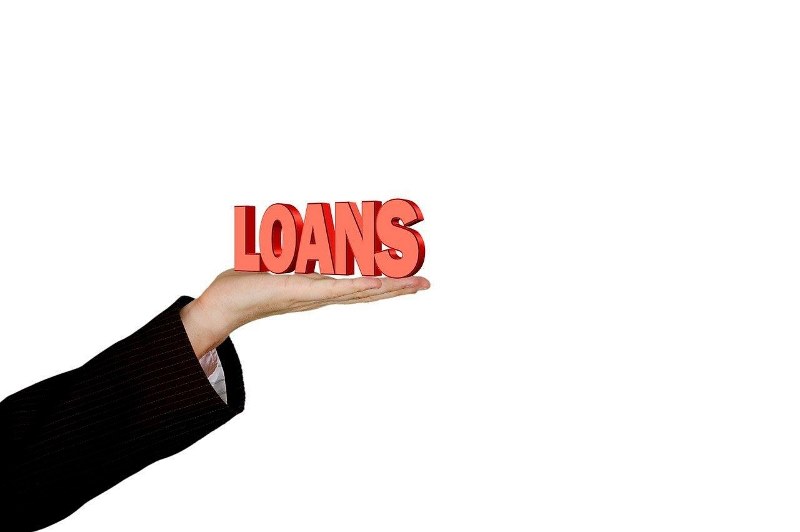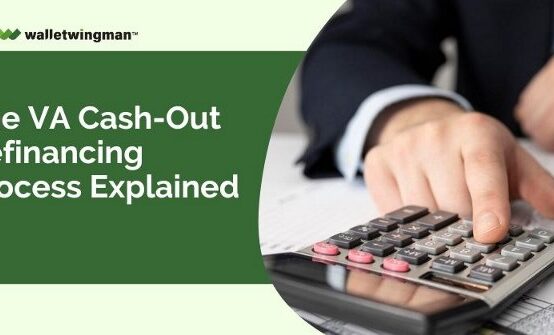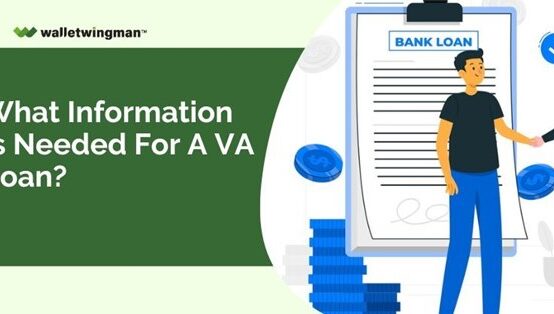The credit score is one of the top factors many lenders consider before approving you for a loan.
A good credit score speaks to your ability to repay the requested funds. It also increases your eligibility for a bigger loan amount and at a lower interest rate.
A bad credit score has the opposite impression. Besides being a major stumbling block to accessing loans, a blemished credit record may also cause lenders to charge you higher interest rates even if the loan is collateralized.
But in the interest of eliminating credit barriers, many financial institutions now avail loans to disadvantaged borrowers. You’ve probably heard of personal loans for the unemployed, non-collateralized loans, and loans for people with deplorable credit scores.
This article shall highlight how credit score can shape your VA loan applications and the available options you can explore. Read on for a comprehensive guide to VA loan credit score requirements.
How Do VA Loans Work?
VA loans are mortgage options available to eligible members of the United States military. The loans are accessible to veterans, active duty members, and their respective spouses.
VA loans are guaranteed by the United States Department of Veterans Affairs. That explains the ‘VA’ initials.
However, the U.S. Veterans Affairs Department doesn’t issue VA loans. It only serves as a guarantor to qualified borrowers.

VA loans are known for their low (sometimes zero) down payment amounts. They also attract other favorable lending terms, including higher loan amounts, reasonable repayment terms, and competitive interest rates.
Of course, there’s a rigorous pre-approval process to contend with.
First, you must be an eligible service member (or the spouse of a service member) with a specified duration served in the U.S. military. You must also prove that you intend to use the loan specifically as a mortgage. Then comes the credit score part.
What Are The VA Loan Credit Score Requirements?
The U.S. Veterans Affairs Department isn’t a lender but a guarantor. That means the organization doesn’t determine your minimum credit score to access VA loans.
The credit scores to secure VA financing are typically set by lenders. The VA then relies on these standards to ensure you’re a creditworthy borrower.

What’s The Minimum Credit Score Set by VA Lenders?
Most VA lenders will require a minimum FICO score of 620. The higher the score, the more significant the loan amounts you qualify for.
Note that 620 is simply the bare minimum and not an ideal score. Depending on other variables a lender uses to determine your creditworthiness, you could still fail a VA pre-approval process.
Similarly, some VA lenders may approve you for a loan with a FICO credit score below 620 if you meet specific additional criteria.
Does The Minimum Credit Score Apply To All VA Loan Types?
There are different types of VA loans, namely;
1. Home Purchase Loans
A VA home purchase loan is designed to help veterans purchase a residential home at industry-competitive rates. It’s known simply as a VA home loan.
One outstanding benefit of VA home purchase loans is that they typically do not attract down payments or third-party mortgage insurance. That makes it remarkably easy to obtain a VA home loan with bad credit.
2. Cash-Out Refinancing Loans
VA cash-out refinancing loans let you borrow against your home equity. You can utilize the funding to cater to various expenses, such as home improvements, school fees, and debt consolidation.
The amount of funds you can borrow with a VA cash-out refinancing loan tends to be higher than the existing note. That’s understandable since this arrangement entails converting home equity into cash.
3. Jumbo Loans
A VA jumbo loan provides access to higher loan amounts without necessarily forfeiting the perks of regular VA loans. For instance, you need not make a down payment if you borrow a relatively small loan and have an excellent credit score.
4. Interest Rate Reduction Refinance Loan
Interest rate reduction refinance loans (IRRRLs) entitle you to a lower interest rate upon refinancing an existing fixed-rate VA loan. It’s also known as a VA streamline refinance loan.
5. Native American Direct Loan
Native American VA loan applicants enjoy certain exclusive privileges, including the ability to obtain a direct loan. They can build, purchase, or develop properties on federal trust land.
6. Construction Loan
A VA construction loan is precisely what it says – a short-term VA loan that helps fund the construction of a new home.
The defining feature of VA construction loans is that they come in piecemeal rather than upfront payments. You receive portions of the loan with each completed phase of the construction project.
Now, VA loan credit requirements apply to all first-time loan applications. The conditions tend to be relaxed if seeking a second loan, primarily if you’ve already settled the first one.

Comparing VA Loan Credit Requirements with Other Programs
1. VA Loans vs. Conventional Loans
Conventional loans do not enjoy a VA guarantee. As such, they typically attract more stringent requirements, including a higher credit score.
Findings by ICE Mortgage Technology suggest that most conventional lenders demand an average FICO credit score of 757.
To obtain a conventional loan with bad credit, most lenders will require a bigger down payment.
2. VA Loans vs. USDA Loans
The United States Department of Agriculture (USDA) is another state agency that backs loans.
USDA loans are available to rural farmers but come with numerous benefits.
Like the Veterans Affairs Department, the USDA doesn’t set a minimum credit score. That depends on USDA lenders, which require at least a FICO credit rating 640.
3. VA Loans vs. FHA Loans
Federal Housing Administration (FHA) loans are state-backed loans insured by the FHA department.
FHA loans requirements on credit scores are more lenient than other state-backed loans. You can access these mortgages with a credit score between 500 and 580, depending on the down payment you’re willing to pay. A 10% down payment corresponds with a 500 credit score, while a 3.5% down payment corresponds with a 580 score.
However, a down payment is just one of the many variables FHA lenders will consider before pre-approving you for these loans. In fact, recent Home Mortgage Disclosure Act (HMDA) data indicates that up to 82% of FHA borrowers in 2023 had a credit score of at least 625. Other undesirable aspects of FHA loans include an up-front mortgage insurance premium, higher lending rates, and additional fees.

Wrap Up
The Veterans Affairs Department doesn’t impose a minimum credit score requirement. That depends on individual VA-approved lenders.
The idea is to continually improve your credit rating through strategies like timely debt repayment and lowering your debt-to-income ratio.


 A Borrower’s Guide to the VA Construction Loan
A Borrower’s Guide to the VA Construction Loan  How to Buy a Condo Unit with a VA Mortgage Loan
How to Buy a Condo Unit with a VA Mortgage Loan  How Much Can I Borrow When Using a VA Loan to Buy a House?
How Much Can I Borrow When Using a VA Loan to Buy a House?  The VA Cash-Out Refinancing Process Explained
The VA Cash-Out Refinancing Process Explained  The Pros and Cons of 15-Year vs 30-year VA loans
The Pros and Cons of 15-Year vs 30-year VA loans  What Information Is Needed for a VA Loan?
What Information Is Needed for a VA Loan? 